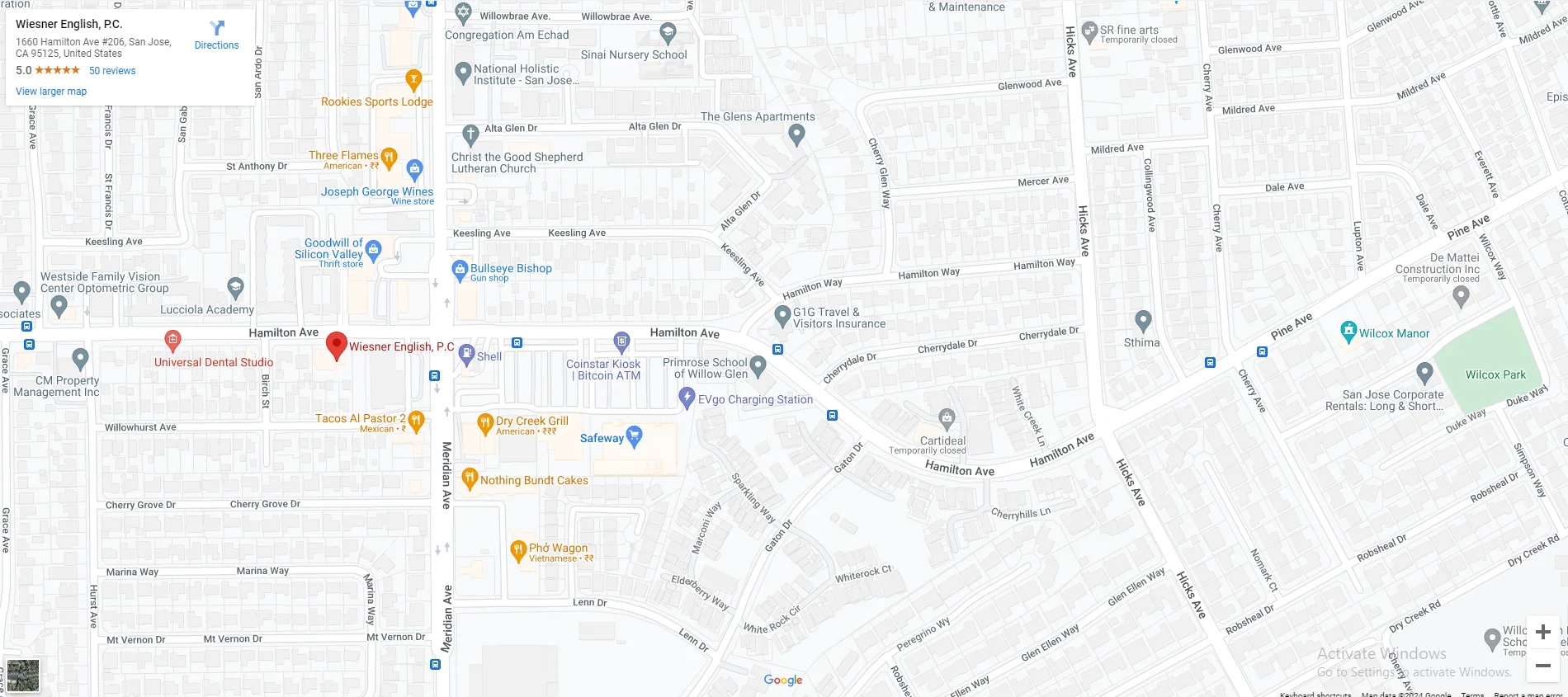What Happens if You Can’t Return to Work After a Work Injury in California? 2025

A serious work-related injury can leave you wondering, “What happens if you can’t return to work after a work injury in California?” Workers’ compensation offers temporary or permanent disability benefits along with vocational retraining and alternative employment support when faced with this situation.
When you find yourself unable to continue in your previous role, you could become eligible for Supplemental Job Displacement Benefits that help fund your retraining. Workers who experience permanent work restrictions due to an injury may qualify for life pension benefits or receive long-term disability benefits in certain situations. Knowing the available options can help you stay financially stable and move to another career when needed.
Temporary vs. Permanent Disability Benefits in California
California’s workers’ compensation system offers temporary or permanent disability benefits to workers who cannot return to their jobs due to a work injury. When you are unable to work due to injury recovery, Temporary Disability (TD) benefits replace your wages for up to 104 weeks, offering two-thirds of your average weekly earnings.
Permanent Disability benefits become available when your doctor identifies a permanent impairment in your condition. The benefits amount is determined by your medical reports along with the severity of your injury and your ability to work in some capacity. People with sufficiently high disability ratings can become eligible for life pensions or long-term benefits, which help meet their continuous needs.
Supplemental Job Displacement Benefits (SJDB) and Vocational Retraining
California workers unable to resume their regular jobs after a work-related injury might be eligible for the Supplemental Job Displacement Benefit (SJDB). The benefit grants an educational voucher worth $6,000 for training and career counseling to assist injured workers in transitioning into accommodating fields. Workers can use their Supplemental Job Displacement Benefit voucher at community colleges, trade schools, and vocational training centers.
The Return-to-Work Supplement Program (RTWSP) delivers a one-time $5,000 payment to workers who sustain permanently disabling injuries that prevent them from returning to work. Research demonstrates that only more than half of workers who qualify for these benefits submit applications, which shows a need for enhanced awareness and outreach efforts.
Long-Term Disability and Social Security Disability Insurance (SSDI)
Workers’ compensation offers long-term disability benefits when your work injury results in permanent total disability. When you cannot work in any job because of your disability, you can become eligible for Social Security Disability Insurance (SSDI). SSDI delivers monthly financial support to individuals facing serious health conditions expected to last a minimum of twelve months.
SSDI functions as a federal benefit determined by your employment history and Social Security contributions, unlike workers’ compensation, which receives funding from employers. Injured workers can receive payments from both SSDI and workers’ compensation, but these benefits might decrease because of offset rules. The SSDI application process requires applicants to obtain medical evidence and work history documentation because of its complexity.
What to Do if Your Employer Can’t Accommodate Work Restrictions
Under the Americans with Disabilities Act (ADA) and the California Fair Employment and Housing Act (FEHA), California employers must actively participate in genuine discussions to identify reasonable accommodations. Reasonable accommodations for employees with disabilities can consist of modified work responsibilities or adaptive equipment and the option to work flexible schedules. Despite these protections, disability discrimination still exists.
The Equal Employment Opportunity Commission (EEOC) processed 67,448 discrimination complaints during fiscal year 2020, among which 36.1% were related to disability discrimination. Employees who cannot work under medical restrictions without accommodations from employers may become eligible for vocational retraining programs alongside permanent disability benefits or Social Security Disability Insurance (SSDI).
The programs offer financial assistance while helping employees move into new job opportunities. Employees hold legal rights when employers retaliate against accommodation requests and have access to legal remedies if they face wrongful dismissal or discrimination linked to their injury.
FAQs
What Are My Options if My Employer Can’t Accommodate My Work Restrictions?
In situations where your employer fails to modify your responsibilities according to your medical limitations, you may become eligible for vocational retraining programs, as well as permanent disability benefits or SSDI.
Employers must conduct an interactive process according to legal requirements to find reasonable accommodations. A disability discrimination claim becomes possible under California law when your employer fails to provide reasonable accommodations or retaliates against you.
Can I Receive Both Workers’ Compensation and SSDI Benefits?
Your SSDI payments could face reductions when you obtain workers’ compensation benefits. The state legislation in California permits injured workers to obtain both benefit types but limits their combined value to 80% of their pre-injury average income. You will receive your complete SSDI payments once your workers’ compensation benefits have ceased. Seeking advice from a legal professional can help you achieve the greatest possible financial recuperation.
What Happens if a Work Injury Prevents You From Returning to Your Job?
A serious work injury can prevent you from maintaining your current job position. California workers’ compensation offers benefits, including temporary or permanent disability payments, which help individuals recover from their injuries.
When you can’t return to your previous job, you might be eligible for Supplemental Job Displacement Benefits (SJDB) that provide retraining vouchers or Social Security Disability Insurance (SSDI) if your injury imposes long-term work limitations.
Can Workers’ Compensation Help You Switch Careers After an Injury?
Employees who cannot resume their previous jobs after an injury may receive retraining support through workers’ compensation benefits. Employees who qualify will receive education and career training vouchers through SJDB when their employer fails to supply any alternative work options. The Return-to-Work Supplement Program in California awards workers a single payment of $5,000 to support their financial situation while they move into a new profession.
Contact Wiesner English, P.C
Workplace injuries that prevent you from returning to your job can create uncertainty about your future. Through workers’ compensation benefits, vocational retraining programs, and disability protections, California helps injured employees maintain financial stability. Wiesner English, P.C. helps employees obtain their rightful benefits by guiding them through disability payments, retraining vouchers, and legal action against employer violations, if necessary. Contact us today for a consultation to discuss your options.
Request A
Free Consultation
Fields marked with an * are required





